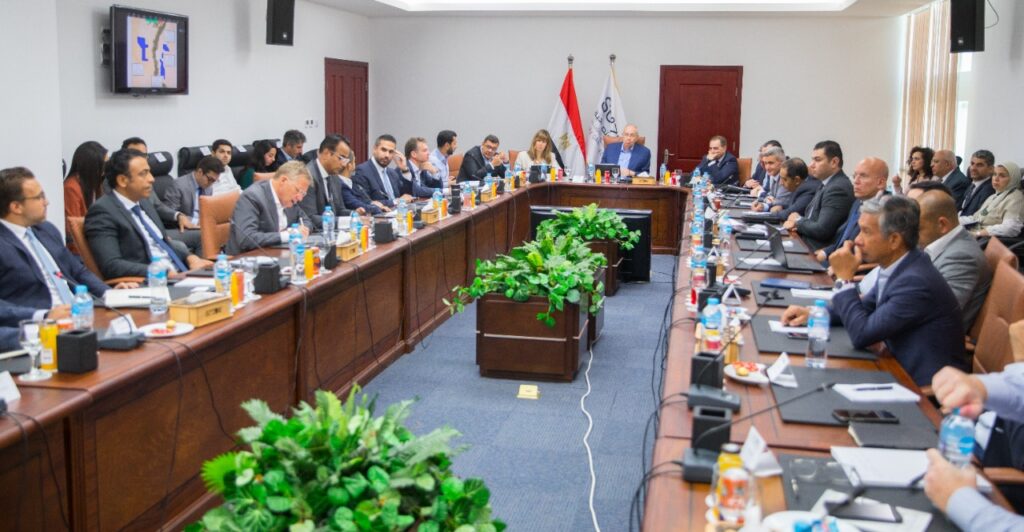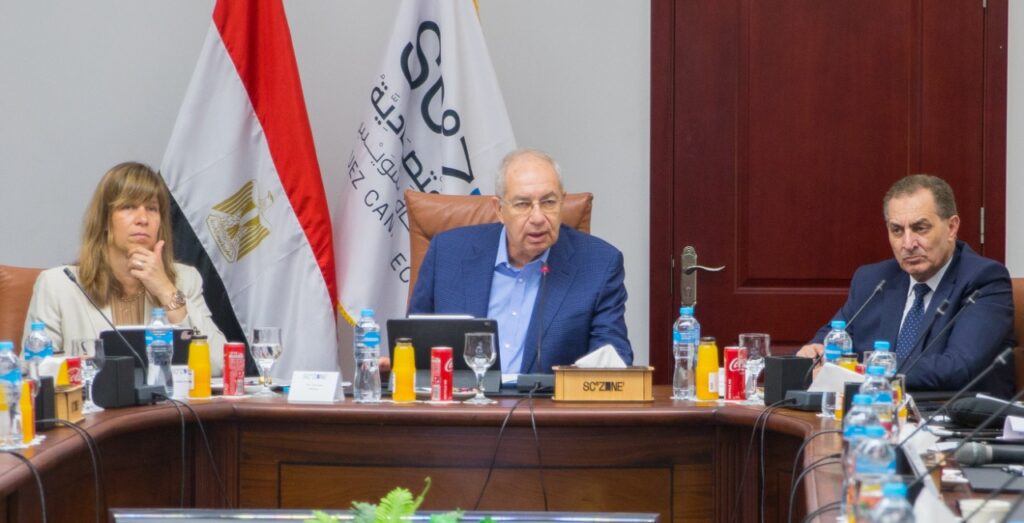- June 29, 2022
- Posted by: Ahmed Abdelatif
- Category: 2022, EN, Green


The Suez Canal Economic Zone (SCZONE) hosted a round table discussion in coordination with the European Bank for Reconstruction and Development (EBRD) , the Ministry of Electricity, and the Sovereign Fund of Egypt(TSFE) within a series of periodic meetings to discuss the frameworks and policies for establishing green fuel projects in Sokhna integrated zone and to discuss the related technical and legal studies.
The meeting held in the presence of Eng Yehia Zaki, SCZONE’s Chairman, Dr. Heike Harmgart, Managing Director of the European Bank for the Southern and Eastern Mediterranean (SEMED), a representative of the New and Renewable Energy Authority (NREA), representatives of the Ministry of International Cooperation, a number of senior EBRD officials and heads of companies which SCZONE signed MOUs in the first quarter of this year.
During the meeting, Eng. Yehia Zaki showcased SCZONE’s efforts to localize the green hydrogen and green ammonia industry in Sokhna zone as a targeted sector within SCZONE’s strategic plan, which aims to optimally exploit SCZONE utilities such as; the strategic location along the banks of Suez Canal, the most important shipping passage in the Middle East, and as a gateway to link the African continent with Europe and Asia.
“The signing of MOUs was to provide an opportunity for the companies to carry out technical, financial, and legal feasibility studies, which qualifies them to invest and move forward to sign the final contracts in coinciding with COP27 conference that Egypt will host next November, to start the first phase of green fuel production by 2025.” Zaki added
On the other side, Dr. Heike Harmgart, EBRD Managing director of SEMED, has assured the coordinating role played by the European Bank to support SCZONE, especially in the clean energy sector and the production of green fuel, noting that today’s meeting is part of a series of business meetings with SCZONE and the companies working on green hydrogen industry to follow up on the developments of these projects.
It is worth noting that the developments of the current economic and political conditions globally have accelerated the adoption of clean energy projects by countries and major European companies, especially green hydrogen, which is used for several purposes, foremost of which is the provision of green fuel for bunkering which contributes to supporting supply chains and the movement of global trade, and also effectively contributes to reduce carbon emissions.



